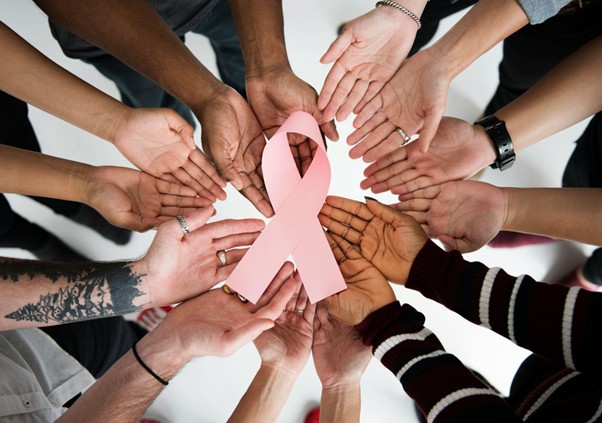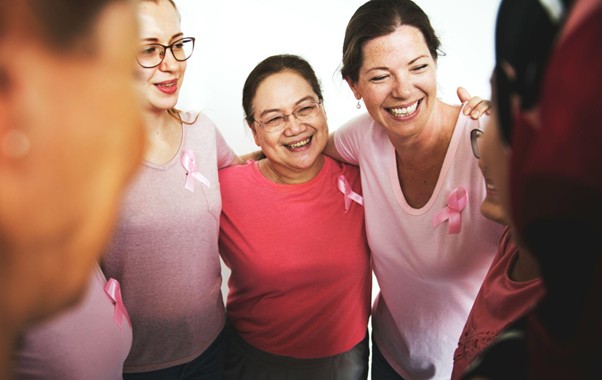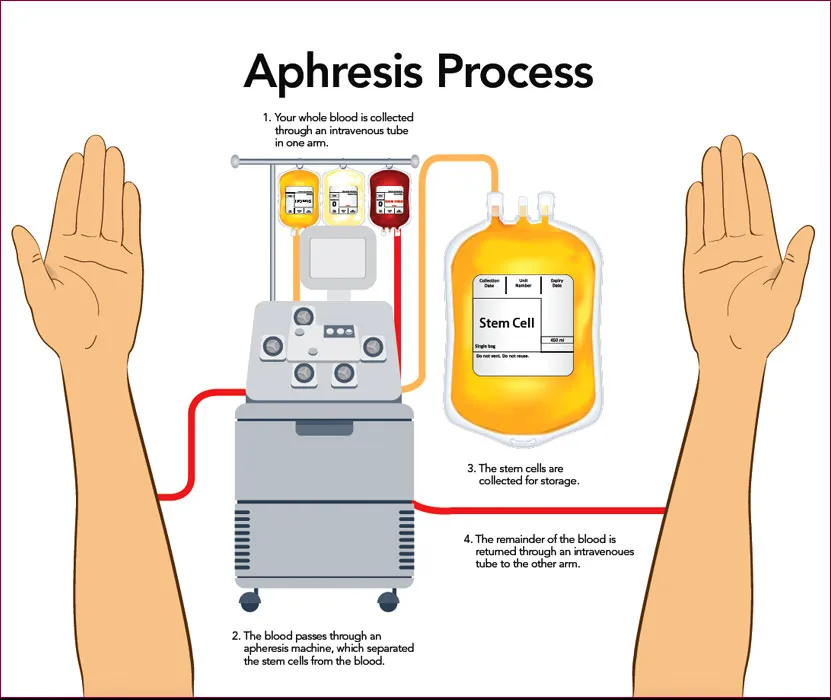Breast Cancer: A Call for Empowerment and Awareness of New Treatment Options such as Personalized Precision Immunotherapy
Breast Cancer: A Call for Empowerment and Awareness of New Treatment Options such as Personalized Precision Immunotherapy

Breast cancer is the most common cancer in women, and it continues to have a significant impact on women’s health worldwide.
October was Breast Cancer Awareness Month and we take the time to honor this important cause by providing early detection education, encouraging information on resources for support networks and ensuring that each individual can contribute to raising awareness and making a difference in the lives of those affected in our society.
In 2024, it is estimated that over 42,000 women in the U.S. will lose their lives to breast cancer. In 2023, there were estimated to be 297,790 new cases of invasive breast cancer—cancer that is expected to spread to other parts of the body. This cancer affects hundreds of thousands of women globally and will touch the lives of grandmothers, mothers, daughters, sisters, aunties and nieces in the years ahead.
For those facing breast cancer, understanding prevention and treatment options is crucial, helping them feel empowered and prepared for the journey ahead.
Breast Cancer And Its Risks
While breast cancer can affect both men and women, it is far more common in women. It occurs when cells in the breast begin to grow uncontrollably, forming a tumour. What makes breast cancer particularly concerning is the potential for it to spread beyond the breast to other parts of the body.
Breast cancer typically starts in one of two places: the breast ducts, which carry milk from the lobes to the nipple, or the breast lobes themselves, which are responsible for milk production and are surrounded by fatty tissue giving the breast its shape.
There are some clear signs that may indicate breast cancer, such as noticeable changes in breast size, the appearance of a lump or swelling, a change in the skin, a change in the size, nipple discharge, a change in the nipple shape, or persistent pain in the breast or chest. However, it’s important to know that breast cancer can sometimes develop without obvious symptoms. Early detection can make all the difference in catching cancer before it spreads. Constant vigilance, through self-exams, medical screenings and assessments, is key to staying one step ahead of breast cancer.

How To Fight Back
A common treatment for women with breast cancer is chemotherapy. Chemotherapy works by targeting rapidly dividing cells, including cancer cells, to stop them from spreading further. While it can be one of the most effective cancer treatments, it can also come with challenging side effects. Beyond the widely recognized hair loss, chemotherapy can impact fertility, bone health, and may lead to anemia. It can also affect cognitive function, as well as heart health, lung health, and mental well-being.
Radiotherapy and mastectomy are the other common approaches to treating or preventing breast cancer, each with their own benefits and challenges.
Radiotherapy works by using powerful X-rays, protons, or other high-energy particles to target and kill cancer cells. This treatment is non-invasive and usually painless during each session, though some discomfort or soreness in the treated area can develop afterward. Radiotherapy can also cause skin changes, similar to sunburn, and some longer-lasting changes to the skin’s appearance.
A mastectomy is a surgical procedure that removes breast tissue to reduce the risk of cancer. Though it’s often a short surgery, allowing most women to go home the next day, it has a permanent impact on the body’s appearance.
In 2013, actress Angelina Jolie made headlines by choosing a preventive double mastectomy after discovering she had a BRCA1 gene mutation. The BRCA1 gene usually repairs DNA and helps prevent tumours, but a mutation disrupts this function, leading to a much higher risk of cancer developing. Jolie’s doctors estimated her risk of developing breast cancer to be over 80%, which led her to take preventive action.

In an open letter published in The New York Times, Jolie shared her experience with the hope of empowering other women, especially those with family histories of cancer, to learn about BRCA testing and options for cancer prevention. Her story brought greater awareness to BRCA testing and preventive treatments, inspiring countless women to explore their health choices with confidence.
While Jolie said that her decision to take this action was simple, others, like Fay Schoper, a writer for the Guardian Newspaper, have not found treatment steps so clear. They are searching for new technological advances which can help them in their fight against cancer.
The Maharaj Institute offers a number of investigations and interventions which can help women confidently make decisions about their cancer treatment pathways and post-treatment health.
Immunotherapy: A Vital Option
The Maharaj Institute offers a treatment called Immunotherapy to combat cancer. Immunotherapy is a type of cancer treatment that uses the body’s immune system to destroy cancer cells more effectively. Immunotherapy works differently to the aforementioned treatments by strengthening or modifying the immune response to identify and destroy cancer cells. Chemotherapy can leave your immune system struggling, making immune therapy an important step in rebuilding your body’s strength to combat possible cancers in the future.
In April 2019, a 49-year-old woman came to the Maharaj Institute for advice and possible treatment options for her cancer.
A blood test showed that some of her immune cells were lower than normal, including her B cells and T cells, both of which help fight cancer. Her natural killer cells, which are the first line of defence targeting cancer cells, were functionally not very effective. Another test found a very small amount of a cancer-related genetic mutation in her blood, suggesting that traces of cancer were still present.
Through continued immunotherapy treatments, she was able to improve her natural killer cells in the long term and a follow-up test showed that no more cancer-related mutations were present in her blood. At the moment, her breast cancer remains in complete molecular remission, meaning that there are no detectable signs of cancer in her body, and she is able to move forward with peace of mind.
Breast cancer can wreak havoc with your health, your body, and your life. If you or your loved ones are worried about cancer, do not hesitate by contacting the Maharaj Institute of Immune Regenerative Medicine to take back control of your health for your peace of mind.

Please call Dr Maharaj at 561-752-5522 to see how he and his team can help you measure and maintain your healthy immune system as well as to test and measure your inflammation. These are non-invasive tests that will provide a clear picture of where your immune health lies, and should it reflect abnormalities, we have the resources to help correct them. We look forward to hearing from you at the Maharaj Institute in Boynton Beach, Florida at 561-752-5522 or info@bmscti.org. Visit us at https://maharajinstitute.com
Request An Appointment
Please fill out the form to request an appointment. We will contact you shortly to confirm the exact day/time.



